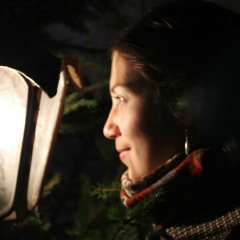#меняневзяли
Раз уж все начали делиться своими провальными историями о том как, не удалось куда-то попасть, хочу добавить свои 5 копеек. В моей жизни лист упущенных возможностей весьма велик, его полную версию составлять довольно долго. Большую часть из них составляют заявки на гранты, которые не прошли. Но обо всем по порядку.
2003 - не взяли в Академическую Гимназию в Питере
2004 - не взяли в питерский Политех по результатам олимпиад, поступил на общем потоке
2010 - не взяли в аспирантуры: Frontiers du Vivant, Ecole du Neurscience du Paris, написал 4 гранта - ни один не прошел
2010 - не взяли на PhD в Nancy
2011 - не взяли на PhD в Amsterdam, Goettingen и Berlin
2011 - опять не взяли в аспирантуру Frontiers du Vivant и Ecole du Neurscience du Paris
2013 - не взяли на курс по нейробиологии в Woodshole
2015 - не взяли на постдок в University College London, Imperial College London и Simons Foundation
2016 - не прошел квалификацию assistant professor по нейробиологии
После защиты PhD стало получше, но успех вечным не бывает, как известно. Надо понимать, что человеческое общество устроено непросто, в любой ситуации выбора всегда есть большое количество противоречащих друг другу интересов разных людей. Как в анекдоте - "Нельзя дать всем все, ибо всех много, а всего - мало." Мы живем в мире ограниченных ресурсов, на которые претендует большое количество людей. Именно поэтому обществу приходится создавать комитеты и придумывать способы оценки деятельности людей. И далеко не всегда такие оценки приводят к нужным людям на нужном месте, часто решения принимаются под давлением авторитета конкретных людей, а не аргументов. Однако, как и в случае с демократией, ничего лучше коллегиального решения мы пока не изобрели. Мнение группы все же менее предвзято, чем каждого человека по отдельности. Поэтому, если хочется преуспеть в системе, нужно хорошо представлять своих экзаменаторов и думать об аргументах, которые ты можешь представить.
Но в конечном итоге это лишь повышает вероятность выбора в твою пользу, а не гарантирует. Поэтому играя в такую лотерею не стоит относиться к ее результатам слишком серьезно.
Раз уж все начали делиться своими провальными историями о том как, не удалось куда-то попасть, хочу добавить свои 5 копеек. В моей жизни лист упущенных возможностей весьма велик, его полную версию составлять довольно долго. Большую часть из них составляют заявки на гранты, которые не прошли. Но обо всем по порядку.
2003 - не взяли в Академическую Гимназию в Питере
2004 - не взяли в питерский Политех по результатам олимпиад, поступил на общем потоке
2010 - не взяли в аспирантуры: Frontiers du Vivant, Ecole du Neurscience du Paris, написал 4 гранта - ни один не прошел
2010 - не взяли на PhD в Nancy
2011 - не взяли на PhD в Amsterdam, Goettingen и Berlin
2011 - опять не взяли в аспирантуру Frontiers du Vivant и Ecole du Neurscience du Paris
2013 - не взяли на курс по нейробиологии в Woodshole
2015 - не взяли на постдок в University College London, Imperial College London и Simons Foundation
2016 - не прошел квалификацию assistant professor по нейробиологии
После защиты PhD стало получше, но успех вечным не бывает, как известно. Надо понимать, что человеческое общество устроено непросто, в любой ситуации выбора всегда есть большое количество противоречащих друг другу интересов разных людей. Как в анекдоте - "Нельзя дать всем все, ибо всех много, а всего - мало." Мы живем в мире ограниченных ресурсов, на которые претендует большое количество людей. Именно поэтому обществу приходится создавать комитеты и придумывать способы оценки деятельности людей. И далеко не всегда такие оценки приводят к нужным людям на нужном месте, часто решения принимаются под давлением авторитета конкретных людей, а не аргументов. Однако, как и в случае с демократией, ничего лучше коллегиального решения мы пока не изобрели. Мнение группы все же менее предвзято, чем каждого человека по отдельности. Поэтому, если хочется преуспеть в системе, нужно хорошо представлять своих экзаменаторов и думать об аргументах, которые ты можешь представить.
Но в конечном итоге это лишь повышает вероятность выбора в твою пользу, а не гарантирует. Поэтому играя в такую лотерею не стоит относиться к ее результатам слишком серьезно.
# changed
Since everyone began to share their failed stories about how, it was not possible to get somewhere, I want to add my 5 cents. In my life, the list of missed opportunities is very large, its full version is quite a long time. Most of them are grant applications that failed. But first things first.
2003 - did not take to the Academic Gymnasium in St. Petersburg
2004 - did not take to the St. Petersburg Polytechnic University according to the results of the Olympiads, entered the general stream
2010 - did not take in graduate school: Frontiers du Vivant, Ecole du Neurscience du Paris, wrote 4 grants - not a single one passed
2010 - did not take on PhD in Nancy
2011 - did not take on PhD in Amsterdam, Goettingen and Berlin
2011 - again did not take Frontiers du Vivant and Ecole du Neurscience du Paris to graduate school
2013 - did not take a course in neurobiology at Woodshole
2015 - did not take a postdoc at University College London, Imperial College London and Simons Foundation
2016 - did not qualify as an assistant professor in neurobiology
After the defense, PhD became better, but success never lasts, as you know. You must understand that human society is not easy to build, in any situation of choice there is always a large number of conflicting interests of different people. As in the joke - "You can’t give everyone everything, because there are many, but not many." We live in a world of limited resources claimed by a large number of people. That is why society has to create committees and come up with ways to evaluate people's performance. And far from always, such assessments lead to the right people in the right place, often decisions are made under the pressure of the authority of specific people, not arguments. However, as in the case of democracy, we have not yet invented anything better than a collegiate decision. The opinion of the group is still less biased than each person individually. Therefore, if you want to succeed in the system, you need to have a good idea of your examiners and think about the arguments that you can present.
But in the end, it only increases the likelihood of a choice in your favor, and does not guarantee. Therefore, playing in such a lottery, do not take its results too seriously.
Since everyone began to share their failed stories about how, it was not possible to get somewhere, I want to add my 5 cents. In my life, the list of missed opportunities is very large, its full version is quite a long time. Most of them are grant applications that failed. But first things first.
2003 - did not take to the Academic Gymnasium in St. Petersburg
2004 - did not take to the St. Petersburg Polytechnic University according to the results of the Olympiads, entered the general stream
2010 - did not take in graduate school: Frontiers du Vivant, Ecole du Neurscience du Paris, wrote 4 grants - not a single one passed
2010 - did not take on PhD in Nancy
2011 - did not take on PhD in Amsterdam, Goettingen and Berlin
2011 - again did not take Frontiers du Vivant and Ecole du Neurscience du Paris to graduate school
2013 - did not take a course in neurobiology at Woodshole
2015 - did not take a postdoc at University College London, Imperial College London and Simons Foundation
2016 - did not qualify as an assistant professor in neurobiology
After the defense, PhD became better, but success never lasts, as you know. You must understand that human society is not easy to build, in any situation of choice there is always a large number of conflicting interests of different people. As in the joke - "You can’t give everyone everything, because there are many, but not many." We live in a world of limited resources claimed by a large number of people. That is why society has to create committees and come up with ways to evaluate people's performance. And far from always, such assessments lead to the right people in the right place, often decisions are made under the pressure of the authority of specific people, not arguments. However, as in the case of democracy, we have not yet invented anything better than a collegiate decision. The opinion of the group is still less biased than each person individually. Therefore, if you want to succeed in the system, you need to have a good idea of your examiners and think about the arguments that you can present.
But in the end, it only increases the likelihood of a choice in your favor, and does not guarantee. Therefore, playing in such a lottery, do not take its results too seriously.

У записи 27 лайков,
1 репостов,
1004 просмотров.
1 репостов,
1004 просмотров.
Эту запись оставил(а) на своей стене Анатолий Бучин




![Алексей Сайко [..love_my_Polinka..] Алексей Сайко [..love_my_Polinka..]](https://sun9-68.vkuserphoto.ru/s/v1/ig1/CjL6DxsQnEvTvamp6hK5Osx9FTgUFHmnKWCN0B2ApWVhyK9V0ODRqDnsP1Yp6jUoj0sOjBXO.jpg?quality=96&crop=298,0,1702,1702&as=32x32,48x48,72x72,108x108,160x160,240x240,360x360,480x480,540x540,640x640,720x720,1080x1080,1280x1280,1440x1440&ava=1&cs=200x200)









































